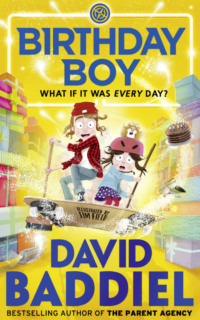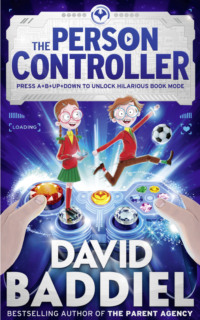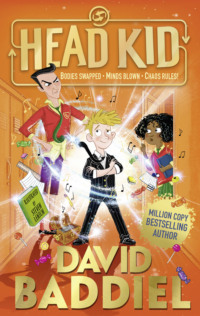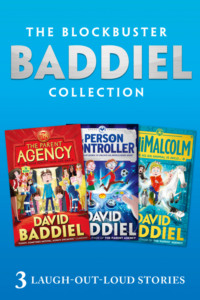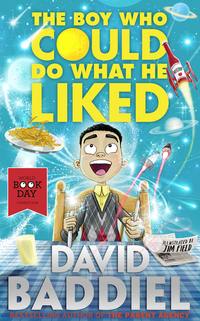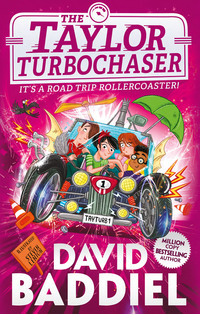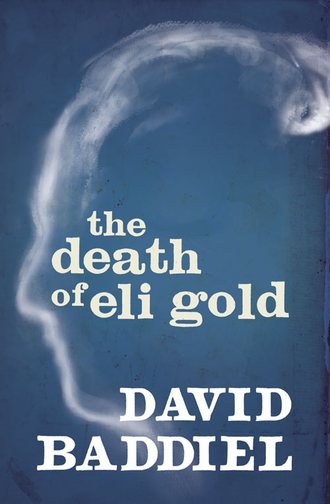
Полная версия
The Death of Eli Gold
This leads to loads of sexual opportunities and wrecks his marriage.
Harvey leans back. Something’s not right about it. He highlights the main body of the prose, and then opens the Formatting Palette, and clicks on I. This happens:
Film Idea
Title: SHALLOW
John Shallow is obsessed with looks. He is also an immigration officer at JFK. His obsession serves him well in his job because he always checks people’s – especially women’s – faces very thoroughly. But it doesn’t serve him so well in his marriage, which is falling apart.
However, through a long and difficult process, involving much therapy and various epiphanies (? don’t know what these are – something profound/life-changing) he comes to terms with it, and saves his marriage. Just at that point, though, while at work, he spots – because he’s still got the skill (the skill at looking) even though he’s sorted out the problems that come with it – someone coming through immigration who turns out to be Osama bin Laden, incredibly well-disguised, using plastic surgery etc (a woman?). Osama is arrested and overnight Shallow becomes a national hero and a major celebrity.
This leads to loads of sexual opportunities and wrecks his marriage.
Yes, that feels better. But now – as ever, when he has done a bit of work – Harvey must grant himself some small reward. He turns away from the computer and takes from his pocket a small bottle of blue liquid. However bleak the journey, there were always consolations on coming to America: the Manhattan view was one, and here was another. While pushing his baggage, ill balanced on the trolley, through JFK’s anywhere-in-the-world airport mall, saliva had gathered in the corners of his mouth, sent up from his forever inflamed throat glands, and Harvey had realized that he was hungry. Not straightforwardly for food; there was something specific which was making his mouth water at that moment, something specific that his system was reminding him can only properly be got hold of in America, reminding him a split second before the words formed inside his damp, sleepless skull: sour sweets. Harvey loves sour sweets; he loves the taste contradiction, the sugar fighting the acid, his tongue a pair of apothecary’s scales holding these opposites in perfect balance. He loves the dialectic. And he loves the fact that all things are postponed during the sucking of a sour sweet; that, while the conflict between sweet and sour remains unresolved, Harvey can float, his soul buoyed up by the sensual striving towards that equilibrium, and nothing matters until it’s over. If he could only get hold of enough of the right kind of sour sweets in the UK, he thinks he may never be depressed; instead, he would be happily addicted to them, despite the terrible stomach cramps that eating them always eventually induces. But in the UK, none of the sweets – not Sour Haribos, not TongueBubbler, not even Toxic Waste – were anything like sour enough for him.
Here, however, in this land where contradiction was possibility, there were sour sweets, Harvey knew, that took the concept of sour-sweetness into a whole new dimension. He had seen on the internet, available from various US confectionery sites, boxes of brightly coloured jelly beans, emblazoned with the promises Extra Sour, Extremely Sour, Very Sour Sours. Yes: Harvey has Googled the phrases ‘sour sweets’, ‘sour candy’, and ‘sour confectionery’, wrapping them in inverted commas so as to allow the computer to make no mistakes about his intention. He had Goo-ogled them, in fact, bringing up multiple images of boxes and wrappers to lasciviously stare at. Unbelievably, perhaps, for a forty-four-year-old man, he had even read reviews of some of these sweets. Zours Incredibly Sour Tangerines had got a unanimous five stars on cybercandy.com, and Harvey had been on the verge of getting them to ship a box out when he remembered he was soon to visit his native land – which, at that moment, figured in his head as Willy Wonka’s factory to Charlie.
Half mad with the craving, and once through the small hiccup in customs, he had dashed inside the first available confectionery containing store, leaving his baggage on the trolley outside, aching to be control-exploded by security. The shop had stocked no Zours, leading Harvey into a mad twenty seconds of uncertainty, his eyes riffling through the Hersheys and the Oreos, until finally asking, in a voice hoarse with desire, ‘Do you have any sour sweets?’ The store assistant, a ginger-haired, fuzzy-faced woman, looked blank, so Harvey looked down, ashamed, feeling that her blankness must contain a condemnation, a deadpan amazement that a man of his age should have such adolescent needs; at which stage he noticed that her index finger had stirred from its fellows, and was indicating downwards and to the left. Harvey’s eyes followed, past the brown and green and pinks, and nearly missed it, because it wasn’t in a wrapper: it wasn’t even a sweet as such, in the boiled, solid, chewable and/or biteable sense. But then his eyes did a double-take, and returned to the words emblazoned on the labels of three small bottles perched above a bright rack of bubblegum: Extra Tart Sour Blast Spray.
Harvey could hardly believe it. Even in all his research he hadn’t come across this: a spray, a concentrate. The sour-sweet sensation, literally bottled, distilled, injectable directly onto the tongue like morphine into the pain receptors of the brain. He bought all three bottles for what seemed at that moment like the incredible bargain price of $2.25 dollars apiece. He had intended to wait until he got to the hotel before trying them, in order to savour the moment. Unfortunately, self-control of this order – or, rather, the lack of it – lies at the very heart of Harvey Gold. This was why various lucky travellers who happened to be passing through the gates of Terminal One of JFK that day were treated to the sight of the middle-aged son of the world’s greatest living author standing in the queue for the airport taxis, mouth open and eyes closed in some small ecstasy, spraying what appeared to be a sample bottle of cheap perfume onto his stretched-out thirsty-dog tongue, gradually coating it blue.
Now, in the hotel room, lying prone on one of his two quilted boats of bedding, he offers that same tongue up for another spray. The wardrobe door opposite has swung open from a bizarre attempt he made soon after entering the room to pack his clothes away, giving up almost instantly on the realization that – even if his father should survive longer than Freda’s projected six weeks – Harvey will continue, while here, to live out of his suitcase, like he has always done on every other trip that necessitated a suitcase. On the inner right-hand door of the wardrobe is a mirror, where Harvey can see himself, or, rather, where he can see all those parts of himself that are not hidden by the solid explosion of his stomach rising from the bed like a termite mound from the ground. His tongue is out of his mouth, and looks, blue and upside-down, like a football shirt drying on the washing line of his lower lip. He undergoes a visual epiphany, not unlike when a mirror on the bathroom door swings your toilet seat image into view, making you think: is man but this? This is a thought Harvey has about himself around five times a minute, however, and so he overrides it with a gust of Extra Tart Sour Blast Spray, flooding his aching taste buds with soursweet rain.
After the hit, trying to avoid the aspartame comedown, Harvey shifts his bulk around to the side of the bed and dials his home number on the telephone on the side table.
‘Mr Gold, how can I help you?’ a smooth, sonorous voice says. Harvey wonders, at first, if it is God, finally asking the requisite question, but then realizes his mistake.
‘Sorry, I forgot to dial …’
‘It’s nine for an outside number, sir.’
‘Yes. OK.’
‘Is there anything else I can help you with?’
Harvey thinks: everything?
‘No. Thanks.’
‘Thank you, sir.’
He clicks off, and dials again, adding the magic nine. And then at the last minute he remembers: five hours behind. His eyes flick to the hands of the faux-antique set on the bedside table: quarter to eleven. In England it will be just gone six – and then she picks up. He hears an airy silence, the rustling of sheets and blankets, before Stella’s ‘Hello?’ comes down the line, alarm penetrating her tone even though her throat is husky and clotted with sleep.
‘Sorry, darling … sorry. I forgot about the time difference. Go back to sleep.’
‘Harvey? Are you OK?’
‘Yes. Yes.’ He knows this is never true, but – not just with her, with everyone that asks it – you can’t go through it all, not every time, can you? No, I’m overweight, exhausted, I get these weird pains in my legs, I have constant low-level nausea, I have prostituted what tiny talent I have ghostwriting the lives of idiots, every woman I pass fills me with despair, my child has Asperger’s Syndrome, my father is dying and I deeply, deeply love my wife but can’t bear the idea that she is starting to grow old. And yourself?
‘Your dad … is he …?’
‘I haven’t seen him yet. No change, as far as I know. But look – what time is it there …?’
A shuffling sound. He sees the scene, familiar in his mind, the safety of the half-light, the day not started, her profile shifting towards the digital clock on her bedside draw.
‘Five forty-five.’
‘Yes. So sorry. Go back to sleep.’ He can feel, even across the wide swathe of water, how it’s too late, how his phone call has rushed consciousness up to her surface, like an air bubble floating from the deep.
‘No, it’s OK. I needed to get up early anyway. Jamie’s got the Montgomery Clinic …’
‘I thought that wasn’t until nine thirty.’
‘Yes. Well, I’ve got to wash my hair.’ In his mind’s eye, Harvey sees the process: her lying back in a full, scalding bath, her face surrounded by water, her curls spiralling away like sea snakes, the whole image a benign Medusa. When she rises out of the steam to work on her hair, her fingers on her scalp move with some precise feminine alchemy, so distinct from his soapy plonk and rub. Every so often, she rotates her head from side to side to prevent the liquid pooling in her ears. The intimacy of watching her wash her hair can feel at times overwhelming. And afterwards, when her hair is wet, falling across her face, before she lifts it into a towel – he does not know where to look. She feels too vulnerable, and his eyes too searching.
‘And I’ve got a lot of work stuff to do, as well, so it’s probably a good idea to get started …’
‘Stop trying to make it better for me.’
‘I’m not. I won’t get back to sleep now anyway. And however pissed off I am about that – which is, yeah, a bit – I’m also pleased, Harvey. To hear from you. I thought your plane must have crashed.’
He laughs, but knows she means it. Every time Harvey flies anywhere, Stella assumes his plane will crash. Her kisses, when he leaves, always have a force to them, impelled by a sense that this could be the last time.
‘That would have been on the news.’
‘The CIA might have been keeping it quiet.’
‘Why?’
‘I don’t know. They might have imposed a security blanket.’
‘I think the word you’re after is blackout.’
‘Oh, yeah. But it’s quarter to six in the morning. I can confuse blanket and blackout. Because I’d like both.’
‘How’s Jamie?’
He hears her rearranging the pillows.
‘He’s OK. He was happy enough after school yesterday. Only got upset at bedtime that you weren’t here. Did you read his note?
‘Note?’
‘His picture. I put it in your suitcase.’
He gets up off the bed, still holding the phone. ‘What, as a surprise?’
A soft beat, her patience diffusing. ‘No, I told you it was in there, yesterday.’
‘Oh sorry, I –’
‘It’s OK. You were in one of your nervous flaps when you were leaving. I knew you weren’t really listening.’
‘Hold on, I’ll go and have a look.’
‘It’s in the zip-up pocket. In the top bit.’
He goes over to the suitcase. It is there, a white envelope with the word ‘DAD’ written on it, in Jamie’s painfully immature handwriting. Inside is a piece of asymmetrically folded A4 paper, on one half of which Jamie has drawn a chess set. The figures are not arranged on the board, but around it. They are not rendered exactly, as they would be if Jamie was an extraordinary Asperger’s child, but randomly: it is difficult to make out which are pawns, and which are major pieces. They look like chess figures in the wind.
Jamie has not written anything to go with his drawing, but on the facing half, in Stella’s looping hand, it says: ‘Have a good trip, even though it’s for a sad thing. I love you. J xxx.’ Harvey holds the note in his hand, and feels his heart crack with love.
He comes back to the phone. Before he speaks, having heard him pick the receiver up, she says:
‘That’s exactly what he told me to write.’
‘It’s really nice. Did you suggest the chess thing?’
He says this knowing that both of them would rather their son had chosen the subject himself, thereby indicating that he has, of his own volition, noticed something about his father’s interests.
‘I may have done,’ she says.
She yawns. He sees their bedroom, dark and warm: Stella makes everywhere cosy. They live in Kent, in a cottage on the North Downs, which would be idyllic were it not for the proximity of the M2. Wooed by the oldness, the Englishness, of the place, Harvey had succumbed easily to the previous owner’s trick of enclosing the front garden with a series of tall hedges, obscuring the surrounding countryside. On a final visit before completion, while visiting the upstairs toilet, he had noticed a somewhat busy road in the middle distance, but, infatuated with the place, and too frightened to disturb at this late stage the serious business of property transaction, had put it out of his mind. Now he spends much time in the garden, trying to gauge exactly how loud that muffled roar is, trying to work out how he couldn’t have heard it before, and trying to think himself into Stella’s method of imagining it’s the sound of the sea.
‘I still think you should go back to sleep.’
‘I said: I’m awake now. Look, don’t worry about me. Did you sleep on the plane?’
‘No. You know I can never sleep on a plane.’
‘You should have flown business …’
‘That’s what Freda said …’ A momentary silence follows this: Harvey assumes she has taken the comparison with his father’s wife as an implicit rebuke, which he had not meant, at least consciously. There is an awkward pause, such as can happen even between couples who have been together for fourteen years, and for whom blips of silence are not generally registered. He waits, wondering if it might be possible over the phone, in another country, to hear the sound of the M2.
‘Well, anyway, darling …’ says Harvey, eventually, feeling the spasticity of words said to break such silences, ‘… I’ll call you later.’
‘OK. I love you.’
‘I love you, too.’
It is the truth, however fast it makes his heart dip.
* * *
My daddy seemed a bit better today. The nurses sat him up in bed, and they took off that see-through mask he usually has to wear over his mouth and nose. He didn’t have it on for ages (later on Mommy told me it was over five minutes!). He still didn’t say anything – the nurse had to put the tube back into his neck while he had the mask off, so that probably didn’t help – but Mommy told me to come over and hold his hand. It made me feel a bit funny, because I haven’t held Daddy’s hand before for so long. After a while I started to notice some of the weird things about it: how he’s got loads of these big brown patches (and some black spots) on the top side and how the bones seemed to be poking through the skin, so that it was a bit like holding a skeleton’s hand. The tops of his fingers (around the nails) look sort of yellow, like he’s bruised them or something, and his nails are really long too – I remember Mommy telling me that Daddy’s nails grow really quickly, and he always forgets to cut them – especially the thumb ones, which were so long they were kind of gross. You might think that nails wouldn’t grow when you’re asleep all the time, but they do.
Sometimes this happens, that Daddy’s skin and stuff makes me feel weird. I’ve noticed before that his skin isn’t like mine – obviously! – or Jada’s, or even Mommy’s, but I guess I’ve kind of gotten used to it. I didn’t really notice it at all until Jada said to me that time that thing about how my daddy’s skin looked like it had lots of little holes in it. I said shut up, stupid, like I always do when she says something like that, something just meant to be nasty, but afterwards I couldn’t help looking and it made it hard to forget because I could see what she meant, sort of. His skin looks more like a net than skin; it kind of looks like bits of skin knitted together around all these tiny holes, like wool looks like close up.
His skin looks even more like wool now, because he’s got all these little white hairs coming out of it. Mommy told me it’s difficult for Daddy to shave now – well, it’s impossible for him to shave, but it’s not even easy for anyone else to do it! They’re so worried about cutting him. But he has lots of little white hairs coming out of the tops of his hands, too, even on his fingers, and he never shaved those even when he wasn’t in hospital. I suppose you would need a special kind of tiny shaver to do them, and I don’t know if you can even get them in any store. I got this really funny idea in my head, that I wanted to turn his hand around, and play round and round the garden with it, even though I haven’t played that for years, not since I was a really tiny baby – but still, when I thought about it, I remembered how I used to like it so much, the tickly feeling so nice, as the grown-up’s finger goes round and round, watching it and feeling it at the same time, and waiting, waiting, waiting for the bigger tickle up the arm. I didn’t do it with Daddy’s hand – I mean, I knew it’d be a stupid thing to do – and, besides, I don’t know if he can actually feel a tickle when he’s so ill and dying and everything.
After Mommy told me to hold Daddy’s hand, her cellphone rang, and she was on it for quite a while (you aren’t really meant to have your cellphone on in the hospital, but I think it’s OK for Mommy to keep hers on because Daddy’s so famous). I held his hand and tried not to think about how weird the skin on it was: I tried to look at his face instead, but that’s even weirder really, because Daddy’s cheeks hang really low, and his ears are so big (especially the bottom bit, the soft bit), and his nose is so long, that now because his skin is all grey his face reminded me of an elephant’s face. Which made me want to laugh at first, but I kept it inside, by holding my breath, which I can do for nearly a minute. Anyway, then I started talking, just saying stuff, things that were in my head: I said, ‘I love you Daddy’ and ‘I hope you get better soon, Daddy’ even though I know he’s not going to get better, he’s going to die, but I didn’t know what else to say – it would have sounded really weird to talk about him dying – but it doesn’t matter anyway, it’s just good to say stuff. He can hear me. Mommy always says he can, even though he never says anything, or even nods his head or whatever. Sometimes she tells me to look in his eyes – Look deep into his eyes, she always says, because that’s where he still lives – and where you can see, she says, that he still understands everything. But his eyes were only half open, and what you can see of the inside bit looks really red – I don’t mean just at the bottom of the eyes, that bit’s always been really red on my daddy’s eyes, and kind of wet, and sometimes I used to think his eyes were bleeding, or that maybe, because he’s a genius, when he cries, it’s blood – God! So mad! That’s like something from Twilight (which Mommy doesn’t know I’ve watched – Jada showed me it at her house, her mom never cares what she sees on TV and stuff).
So then I just kept going, saying whatever came out of my head. Mommy was still on the phone and the nurses were moving around the room and that machine that Daddy is hooked up to all the time with the green lines on it kept on beeping, so no one was really noticing. I told him about Aristotle, my cat, about how he’s started to get really fat because while we haven’t been at home the whole time Noda – that’s our housekeeper; she’s from the Philippines – just leaves food out for him, like a whole tin at once!! And then he just goes over and nibbles on it all day like a cow eating the grass. I told Daddy about how last time me and Elaine took him to the vet, the vet said that he needed to lose weight otherwise he might get ill, and so we bought him this cat food they only sell at the vet called Seniors, which is meant for older cats – which he kind of is, too, even though he’s younger than me, six and a half, but you have to times it by ten, so that makes him sixty-five (which is way old, but still quite a lot younger than Daddy) – but it’s good for fat cats because it’s got less protein and stuff in it and that helps to make them thin. But all that’s like a waste of time now because Noda just opens the tin of FancyFeast and pours it all out for him to nosh at all day.
I felt a bit silly talking about Aristotle like this, because I didn’t know if it was the right kind of thing to talk about. I thought maybe I should be talking about something more grown up, but I couldn’t think of anything. I started to feel sad, because I haven’t seen Aristotle that much since we’ve been going to the hospital all the time, and I really miss him. He’s a really sweet cat, with black and white fur and a really cute little pink nose, who always purrs when you stroke him. I think he misses me, too, because he always comes right up to me when we do get to go home, and nuzzles my leg for ages. So because I was thinking about him and about how he wasn’t getting to eat the Seniors that he’s supposed to, I started to cry. Then, I felt really silly, standing there, getting that funny tickle between the corner of your eye and your nose when the tear comes out – I mean not like blubbing crazy, not even sniffling, just one or two tears coming out – but Mommy quickly stopped her phone call and came over, knelt down and gave me the biggest hug, squeezing me so, so tight.
‘Colette! Darling! It’s OK …’ she said. ‘Cry if you want to. Cry. It’s OK.’ She was patting me on the back at the same time, like Elaine sometimes used to do when I was little and had swallowed something bad. ‘It’s OK.’ I was still holding Daddy’s hand. Mommy was smiling, that smile she does when she looks at Daddy sleeping in his bed, or sometimes when she picks up one of his books. Sort of sad and pleased at the same time. ‘We all feel like crying at the moment.’
‘But you don’t cry …’ I said.
She did one of her smiles. ‘I want to. Really. But sometimes when you’re grown up you have to be strong.’ She pulled a tissue from her sleeve and wiped my eyes. ‘Do you need to blow your nose?’
I shook my head. ‘When I say strong I don’t mean like when someone who lifts something really heavy.’ I knew she didn’t mean that. ‘I mean when bad things happen – when the worst things happen – you have to try and keep going. With a smile on your face. To make sure everyone else doesn’t get more upset.’ She touched my cheek. ‘I have to be strong for you.’
I thought about this for a bit.
‘OK. But if you want to cry it’s OK, too, Mommy,’ I said. ‘Maybe when you cry, I can be strong for you.’
Mommy looked so pleased that I said this. But she also looked a bit like she was going to cry there and then. She gave me another really big hug, and then said, in her softest voice:
‘Thank you, Colette. Thank you.’
I wasn’t sure whether or not to say anything about how much I missed Aristotle. Instead I said: ‘Mommy. Is Daddy in a comma?’


